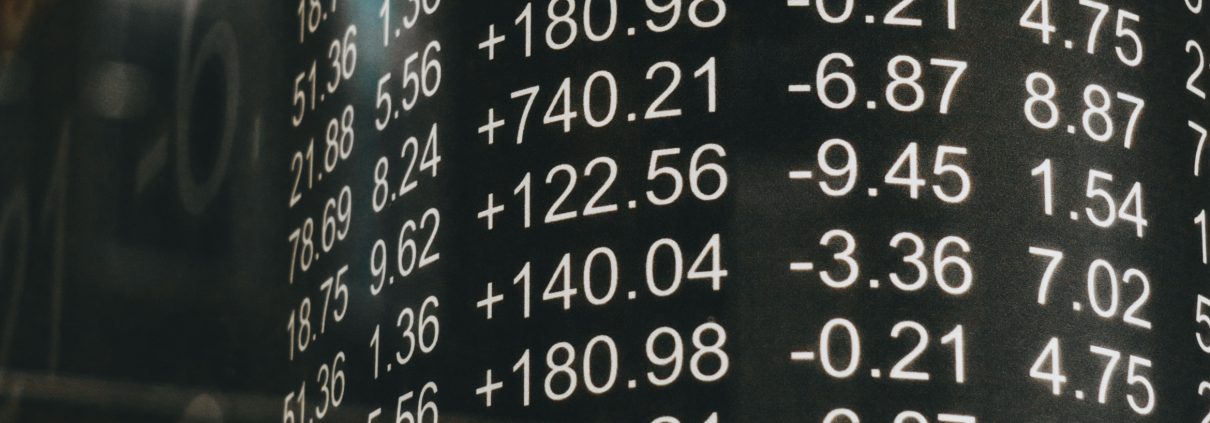Interest and awareness towards Bitcoin has been growing tremendously lately, and December 10, 2017 was a special day for it. The Chicago Board options Exchange (Cboe), Global Markets Inc. (Cboe: CBOE | Nasdaq: CBOE), one of the world’s largest exchange holding companies announced that Cboe bitcoin futures (XBT) began trading exactly as planned at 5:00 p.m. CT on Sunday, December 10, 2017, at the start of Global Trading Hours.
About us
Empirica is a trading software company focused on developing the potential that cryptocurrencies bring to financial markets. Empirica is offering solutions such as Algorithmic Trading Software used by professional cryptocurrency investors and market makers, robo advisory system, crypto trading bots and trading software development services for companies from capital and cryptocurrency markets.
The opening price for XBT was $15,000 and 890 contracts were traded by 7:15 p.m. CT. Monday, December 11, was the first full day of trading. Cboe previously announced that all transaction fees will be waived throughout the month of December.
Over the last five years, the total value of all bitcoin (i.e., “market capitalization”) has grown from less than $1 billion to over $262 billion with daily notional turnover on December 8, 2017 exceeding $21 billion. The total value of all cryptocurrency tokens outstanding now (December 2017) approximately $423.7 billion.
This type of news draws attention of Arbitrage traders, specially the early days or even hours to come an arbitrage away some of the price differences. For example earlier this year back in May, Bitcoin was trading around $2,500 on Japanese exchanges while its price at US exchanges was around $2,100, that makes the spread of 16%! A dream come true for Arbitrage traders.
What does it really mean to Arbitrage on Bitcoin?
Currency arbitrage is the practice of using price differences between markets. These price differences occur because some exchanges are more liquid than others. Bigger exchanges with more trading will ‘induce’ the price for the rest. Smaller exchanges follow the purchase price of larger ones, with a little lag. That small lag is the thing that makes arbitrage potential.
Let’s give a simple example on how Arbitrage trading on Bitcoin looks like. Lets assume the ask price of Bitcoin at Bitfinex is $16,389 and at the same time bid price at Coinbase is $16,537. Assuming the trader has enough funding on the both exchanges, then the possibility of Arbitrage exists. The trader will simply places a bid at Bitfinex for $16,389 and place an ask at Coinbase for $16,537. This transaction will leave the customer with theoretical profit of $148.
In order to provide an actual profit of an Arbitrage trade on Cryptocurrencies and Bitcoin in specific, there are other factors such as the fees involved. Each trade (transaction) on the mentioned exchanges and all crypto currency exchanges has a fee to it. Depending on the amount and number of trades, Bitcoin trading would have from 0 to 0.5% of trading fee involved with it, with the most common fee to trade as 0.2%. Thus, Arbitrage profit should be calculated as the bid minus the fee minus the ask plus the fee.
Additional to the trade fee, there could also be a fiat money withdrawal fee in Bitcoin trading and that is also depending on the exchanges the Arbitrage is performed e.g. the Bitfinex withdrawal fee is around $20. In some cases the withdrawal fee is counted by the amount such as CEX.io with credit card withdrawal for Master card is 1.2% plus $3.80.
As magical as Arbitrage sound these days, especially on Bitcoin with its price fluctuation across exchanges, traders who intend to perform Arbitrage on Bitcoin, should take into consideration some factors before and during their trading procedure. This includes making sure trades and quotes are as close to real time as possible. This is probably the most important thing to get right in Arbitrage. Another important factor is the tool used for Arbitrage and how is it connected to you Cryptocurrency exchange. This is typically done through API integration. This could be a problematic step since poor technical specification and documentation is common among exchanges across the market. [If you would like to know how Empirica overcome this issue feel free to contact our experts within API integration].
Another perhaps important factor for Arbitrage traders to check is the exchange and if it is regulated or If it has a history of hacks. They should also Check if the exchange has good customer support and is responsive to support requests or if the exchange has been around for a good amount of time and has built a solid reputation.



